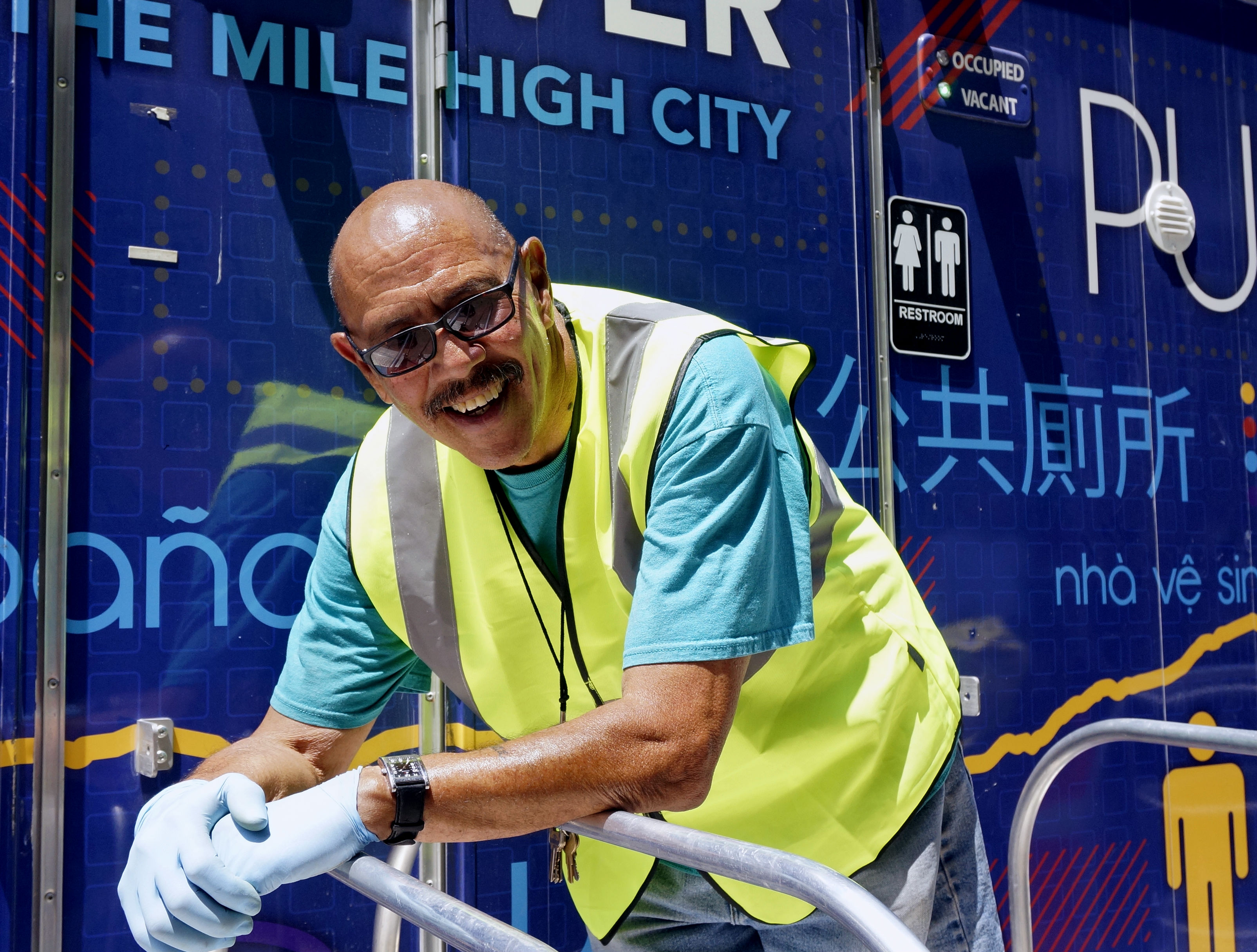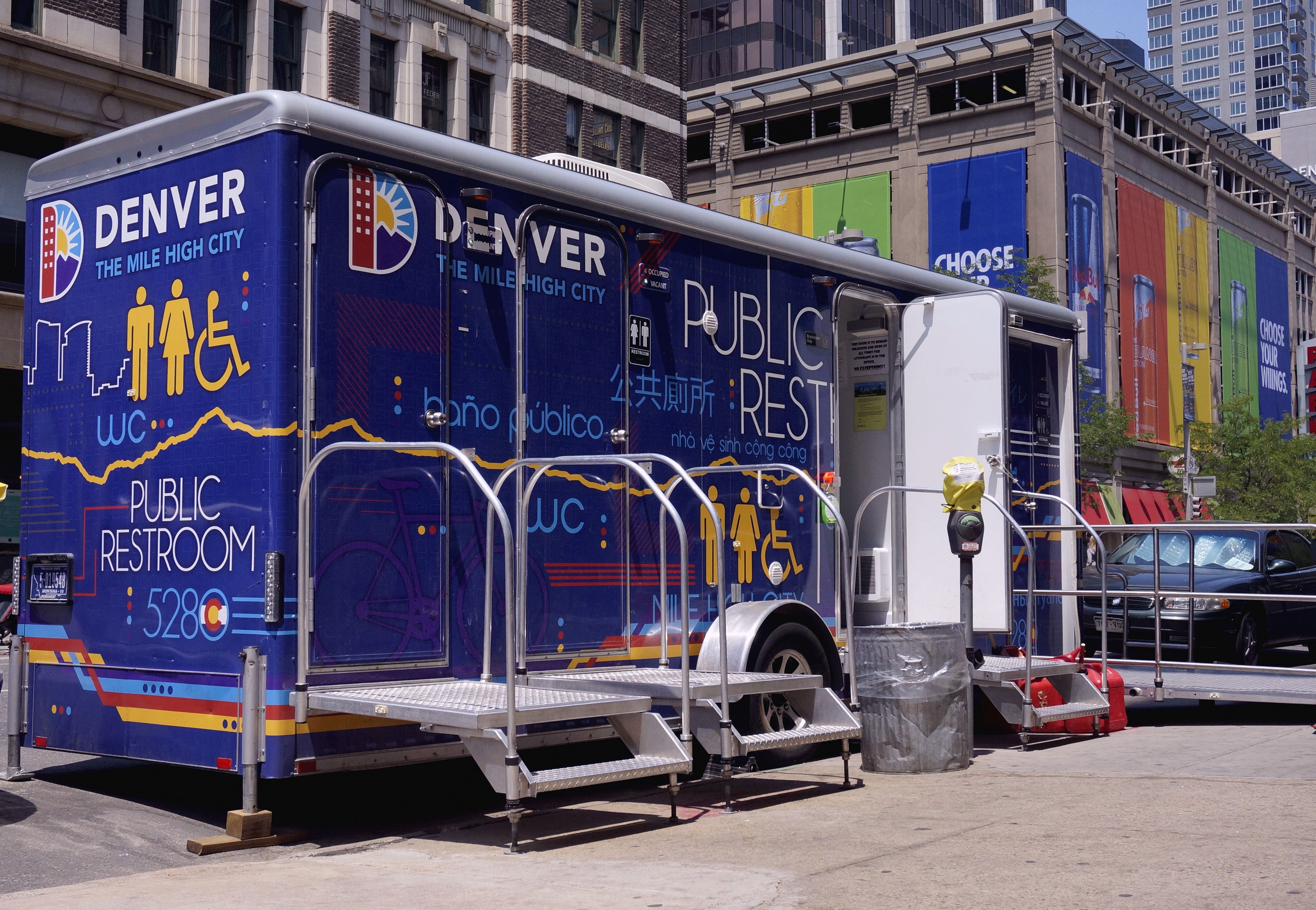
"I know [the restrooms] are excellent," Atencio said recently while taking a break from his chores with a mop and cleaning solution in hand. "I know how I keep them. I keep them clean. I like to go into a clean restroom."
The focus of Atencio's attention is parked near the 16th Street Mall: A bright blue trailer emblazoned with the city logo and the words "public restroom" all over it. There are two stalls and a third that's accessible with a wheelchair ramp. Each stall has its own toilet and sink.
What it doing near a major downtown attraction like the mall? A few years ago, city officials realized they needed a better way to handle crowds in need of restrooms where there aren't enough -- and complaints about people relieving themselves outdoors and in public. So in March 2016, the city deployed its first mobile public restroom. There are now two units parked in busy areas around the city.
"Just like we provide street lights and we provide benches, it makes sense to have this type of infrastructure too," Denver Public Works communication director Nancy Kuhn says.

Denver leases them from Liberty Waste Management in Englewood. Kuhn says one unit costs $15,000 -- about 40 percent of that goes to the attendant. The restrooms relocate regularly to help the city determine the best locations to build permanent facilities. Kuhn says the city plans to operate the mobile restrooms into 2018.
Denver at-large City Councilwoman Robin Kniech says one big takeaway has been that "it matters a lot where it's located."
"If you move the restroom 50 feet from a main thoroughfare, you get less usership than if it's right on that [street]," Kniech says.
While some might frame these restrooms as facilities for people who are homeless, Kniech says the data shows that they're being used by a wide array of people, from people visiting the area, to those who are homeless, as well as individuals living and working nearby.
"These restrooms are for everyone," she says. And more public restrooms -- permanent ones -- are coming available as the city gets public restrooms that have been closed or inoperable repaired and up and running again.
Besides making sure he keeps a clean facility, Atencio also asks his customers their age and zip code -- data for the city to analyze later to help get a handle on who's using the mobile toilets.
Between keeping things clean and talking to folks, Atencio says he has a lot of fun on the job.
"A lot of people, all they do is say 'thank you,'" he says.
Read about other mobile services along the Front Range:









